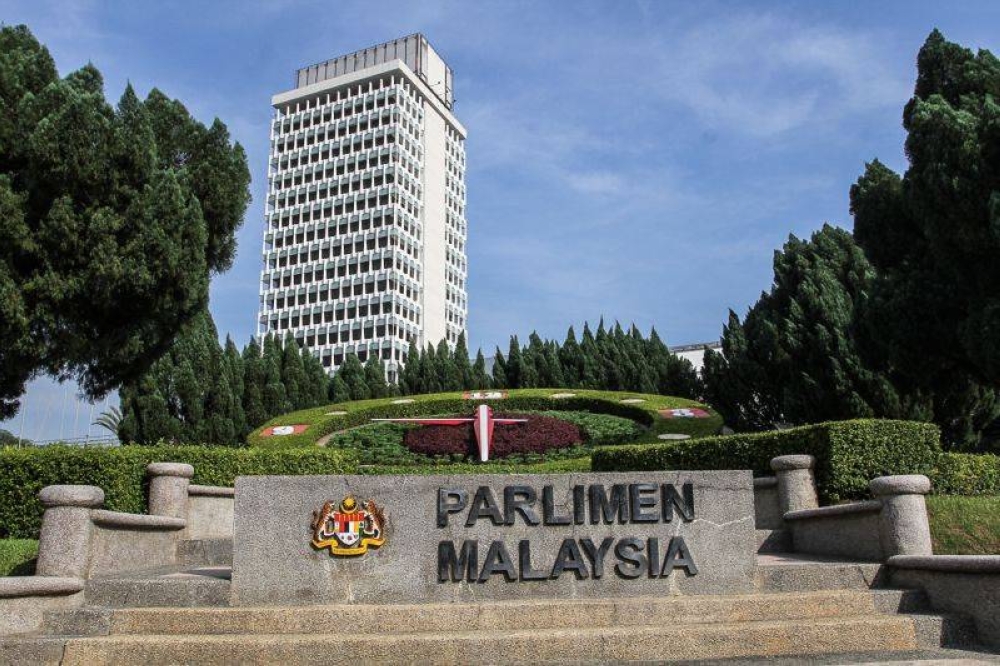KUALA LUMPUR, Oct 18 — Two Malaysian Muslims with ties to Kelantan have successfully obtained the Federal Court’s permission to proceed with a constitutional challenge to 20 Shariah offences under a Kelantan law.
The Kelantan government had resisted the court challenge by insisting that its state Islamic law — which contains those 20 Shariah offences — was valid and constitutional, and had also claimed the two women had no legal standing to file such a court case.
But the Kelantan government ultimately failed to convince the Federal Court that the duo’s court challenge should not be heard.
The court challenge was filed by Kelantan-born lawyer Nik Elin Zurina Nik Abdul Rashid and her daughter Tengku Yasmin Nastasha Tengku Abdul Rahman on May 25 directly at the Federal Court via Article 4(4) of the Federal Constitution, with the Kelantan state government named as respondent.
Under Article 4(4), the validity of any laws made by Parliament or a state legislature can be questioned in court, based on reasons that Parliament or a state legislature did not have powers to make those laws.
They went directly to the Federal Court as it has exclusive jurisdiction to decide such questions, based on Article 128(1)(a) of the Federal Constitution.
For such constitutional challenges under the Article 4(4) route, it can only start if a Federal Court judge grants leave or permission.
All OK to start challenge
On September 30, Federal Court judge Datuk Vernon Ong Lam Kiat heard arguments by lawyers for both the two women and the Kelantan state government, before deciding on the same day to allow the two women to commence their court challenge.
The judge ordered the duo to start proceedings for their constitutional challenge within 14 days of the court order.
This means that the two women have cleared the first hurdle, and that a panel of Federal Court judges will be hearing and deciding whether the Kelantan state government had the power to make the state law on the Shariah offences.
Following the Federal Court’s decision on September 30, the two women on October 13 filed the petition needed to start the hearing of the actual constitutional challenge on its merits.
Based on the court’s listing, the case is scheduled to come up for case management at the Federal Court on November 14.
The two women were represented by Datuk Malik Imtiaz Sarwar and Surendra Ananth in the September 30 online hearing, while the Kelantan state government was represented by Kelantan’s assistant state legal adviser Adam Mohamed.

What is being challenged and why?
The two women’s challenge ultimately argues that the Kelantan state legislative assembly did not have the powers to create these 20 Shariah provisions in a state law, as it is the federal government instead which holds the powers under the Federal Constitution to make laws on such crimes.
Through the court challenge, the two women are seeking for the Federal Court to declare that 20 provisions of Kelantan’s Syariah Criminal Code (I) Enactment 2019 are invalid and null and void, as the Kelantan state legislature has no powers to make laws on these matters.
The 20 provisions cover various Shariah offences listed by the Kelantan state legislature, including Sections 5 (false claim); 11 (destroying or defiling place of worship); 13 (selling or giving away child to non-Muslim or morally reprehensible Muslim); 14, 16 and 17 (sodomy, sexual intercourse with corpse, sexual intercourse with non-human); 30 (words capable of breaking peace); and 31 (sexual harassment).
The rest of the 20 provisions are Sections 34 (possessing false document, giving false evidence, information or statement), 36 (anything intoxicating), 37 (gambling), 39 (reducing scale, measurement and weight), 40 and 41 (executing transactions contrary to hukum syarak and executing transactions via usury), 42 (abuse of halal label and connotation), 43, 44, 45, 48 (offering or providing vice services, preparatory act of offering or providing vice services, preparatory act of vice and “muncikari” otherwise known as a person acting as an intermediary between a woman and man or between the same gender for certain offences) and 47 (act of incest).
Under the Federal Constitution’s Ninth Schedule, there are two different lists that say what the federal government — via Parliament — has powers to make laws on, and what the state governments — via their state legislative assemblies — have powers to make laws on.
List I is the Federal List which states what Parliament can make laws on, while List II or the State List provides a separate and shorter list of what state governments can make laws on.
In an affidavit filed to support the constitutional challenge, Nik Elin Zurina explained that Item 1 of State List allows the state legislatures to make laws on the “creation and punishment of offences” committed by Muslims against the precepts of Islam, except when such matters are already included in the Federal List or which comes under the federal government’s law-making powers.
The Federal List’s Item 4 specifically mentions “criminal law” as being meant for Parliament to make laws on, with Nik Elin Zurina arguing that this would include all matters of public concern relating to matters such as peace, order, security, morality, or health in the public sphere.
In the affidavit, Nik Elin Zurina stated a detailed list that showed that all of the 20 challenged provisions in the Kelantan state law had actually already been covered in multiple federal laws made by Parliament such as the Penal Code, anti-human trafficking laws, gambling-related laws, the Dangerous Drugs Act, and laws on misleading food labels.
She argued that this means that the 20 provisions are beyond or outside of the Kelantan legislature’s law-making powers.
Kelantan’s Syariah Criminal Code (I) Enactment 2019 was gazetted on December 31, 2020 and lists more than 50 offences, and is said to have come into force on November 1, 2021.

What was the Kelantan government’s objection?
The Kelantan government’s objection to the court challenge is that the two women allegedly lack legal standing to file the case, claiming that they would not be directly affected by the 20 provisions in the Kelantan state law despite their ties to Kelantan as they are both living in Kuala Lumpur.
The Kelantan-born Nik Elin Zurina has, however, said she had previously practised as a lawyer in Kelantan and even had a law firm in the state in the past and had also stayed there, and said she frequently travels to Kelantan as she still has family and assets in Kelantan, and stated her intention to retire to her home state.
Her daughter is also a frequently traveller to Kelantan and has a residential address there.
The Kelantan government also argued that the 20 provisions in the state law are valid as the 2019 law only applies to Muslims in Kelantan, and as the Federal Constitution allows the state legislatures to make laws on offences applicable to Muslims, further arguing that Muslims are subject to both laws made by Parliament and laws made by the state legislatures.
Lawyers for the two women have said they have an arguable case, stating that the Federal Constitution only gives limited law-making powers to state legislatures that cover only purely religious offences and not offences falling under “criminal law” which comes under the federal government’s law-making powers.
Their lawyers also argued that the duo had legal standing to file the challenge as they have a genuine interest in the matter, with the Federal Court on September 30 ultimately deciding to grant them leave to start the challenge.
TLDR summary
In short, the women’s court challenge is not about religion or going against any religious authority.
Instead, it is about whether the federal government or state government has powers, under the Federal Constitution, to make laws on those offences covered in the 20 provisions.
It is about whether those 20 offences come under Parliament’s law-making powers or the state legislature’s law-making powers.
The question in this court case is whether the Kelantan state legislative assembly overstepped its limited scope of powers under the Federal Constitution to make laws, and which means such laws would be invalid or having no legal effect.



















